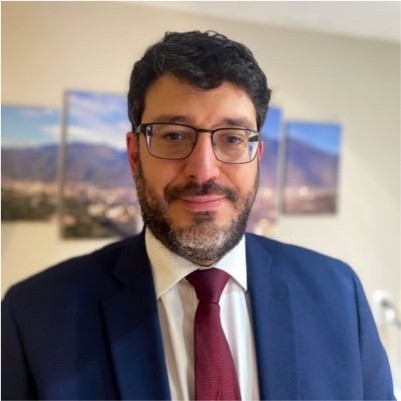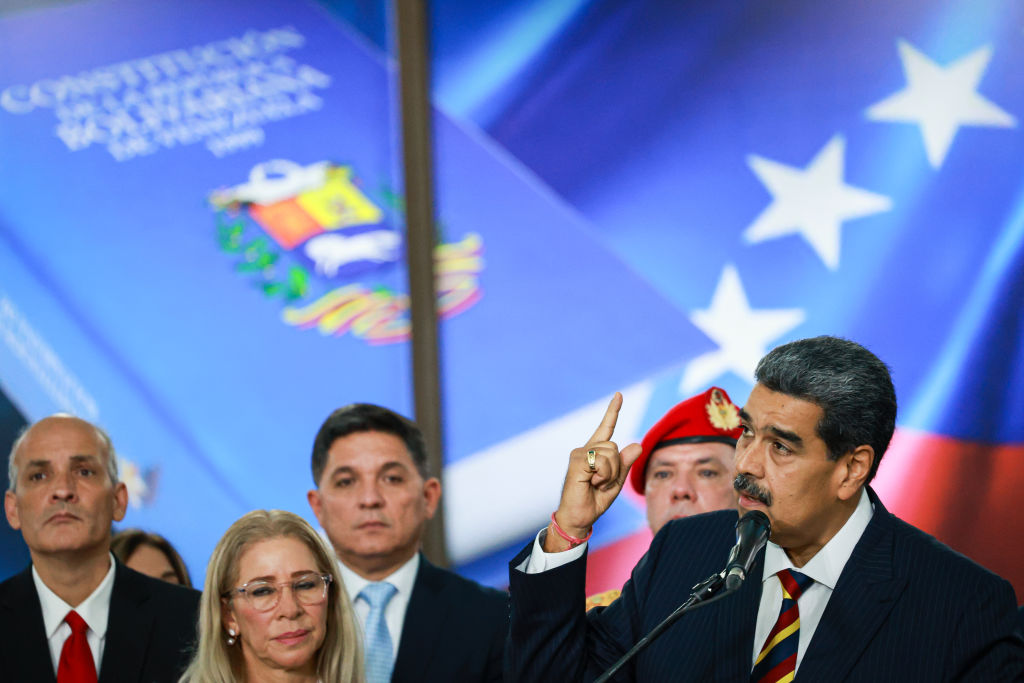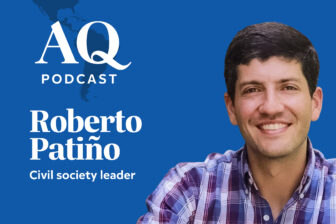Venezuela is a remarkable, although tragic, example of how dictators—as the political philosopher Heinrich Rommen once wrote—are masters of legalism. When Hugo Chávez was elected in December 1998, Venezuela had a workable constitutional democracy. Since then, democracy has eroded in a slow-motion process through the abuse of constitutional institutions, following the patterns of constitutional authoritarianism complemented by populist rhetoric. Today, the regime led by Nicolás Maduro is resorting to “autocratic legalism” in another desperate attempt to stay in power. Will he succeed in his maneuver?
Autocratic legalism is an expression coined by Amherst College’s Professor Javier Corrales to describe how democratic backsliding in Venezuela was driven by the use, abuse, and disuse of the law. The nation’s Supreme Court (TSJ in Spanish) has been the preferred tool for concealing abuses. Rather than protecting the constitution through judicial review, the TSJ has adopted twisted interpretations to destroy the foundations of once-healthy constitutional democracy.
In December 2015, the TSJ’s Electoral Chamber arbitrarily “suspended” Indigenous deputies, paving the way for the “judicial contempt” that unlawfully prevented the 2015 National Assembly from exerting its legislative function. And last October, the Chamber “suspended” the primaries won by opposition leader María Corina Machado on the grounds of judicializing political rights.
Not surprisingly, the Electoral Chamber has been used to cover up the gross violations committed by the National Electoral Council (CNE). Between July 29 and August 2, the chairman of the CNE proclaimed Maduro as elected president based on unaudited, uncertified results of the presidential contest held on July 28. The proclamation violates the electoral transparency principle (Art. 294, Constitution, and Art. 140, 146, and 156, Electoral Procedures Organic Law, EPOL). In addition, the CNE has not electronically published the electoral results, separated by polling stations, as required according to the electoral calendar. More than two weeks after the election, its webpage is still shut down, supposedly due to a cyberattack, and Venezuelans and the international community alike are still in the dark about the authenticity of the results.
That’s not the only instance of electoral malpractice. As the Carter Center concluded, the election “did not meet international standards of electoral integrity at any stage and violated numerous provisions of its national laws.” A panel of UN experts said the announcement of the result without making public the required evidence was an instance of malpractice that “has no precedent in contemporary democratic elections.”
While the overwhelming majority of the international community has asked for the release of the vote tallies, the electronic dissemination of the results, and an impartial audit—in line with international electoral standards and Venezuelan law—Maduro decided to repeat an old trick: ask for the help of the TSJ, specifically the Electoral Chamber, to conceal the real outcome of the election.
A complaint without content
On July 31, Maduro filed a complaint before the three-member Electoral Chamber, and the day after, the injunction was admitted but not published. Based on its summary made public on X, we can deduce the purpose of the complaint was to conduct “verification” of the July 28 election.
The Electoral Chamber only has jurisdiction regarding complaints based on reviewing specific electoral actions, omissions, and decisions (Art. 213, EPOL). Therefore, the complaint must identify its object and the parties of the case (Art. 180, Supreme Tribunal Organic Law, STOL). So far, there is no information about the content of Maduro’s complaint, and the parties involved in the case are unknown. Therefore, the Chamber will not conduct a judicial review of any decision by the CNE. On the contrary, it’ll act as a verification entity, exceeding the jurisdiction vested by Art. 297 of the Constitution. To make matters worse for those seeking transparency on the existential series of events, the Supreme Tribunal’s webpage has also been shut down, and the judgments related to this case have not been published.
To proceed with the task assigned, the Chamber summoned all the ten presidential candidates in contention to hearings. As one of the candidates, Enrique Marquez, explained, there was no information about the condition under which those summonses were conducted. Another candidate, Antonio Ecarri, stated that there is no information about the object of the complaint. In other words, nobody knows if the candidates are the defendants, the plaintiffs, or witnesses. In addition, the Chamber violated the duty to call all interested parties to participate in the case (Arts. 188 and 189, STOL).
In another violation, the Chamber concluded that Edmundo González Urrutia, the candidate who obtained the most votes, “disobeyed” the summons when he decided not to appear before the authority. The affirmation distorted the procedure rules: there is no duty to attend a summons because its object is to provide a chance to present arguments (Art. 344, Civil Procedure Code). In any case, González Urrutia would not have been able to present arguments because there is no procedural debate.
Without arguments, without jurisdiction
In an unsigned and unpublished judgment disseminated on the TSJ’s Instagram account on August 11, the Chamber summarized all the hearings conducted. However, no hearing was held according to the procedural rules.
The hearing is designed for the parties to present their arguments and evidence related to the dispute. However, there were no arguments, evidence, or legal disputes in this case. Consequently, the hearing consisted of formal proceedings during which the candidates, who were summoned blindly, presented their opinions regarding a case whose details were unknown.
On the same day, the Chamber also announced it had the expertise to verify the electoral documents. However, the Constitution and the Electoral Law do not authorize the Chamber to verify electoral results. Additionally, its expertise can only apply regarding disputed facts (Art. 453, Civil Procedure Act), and this is a case without disputed facts or arguments.
Article 297 of Venezuela’s Constitution clearly expresses that the Chamber has jurisdiction over electoral claims but cannot verify electoral results. This falls under the National Electoral Council’s authority (Art. 156, EPOL). In any case, the Chamber is not an impartial tribunal for such verification.
However, the “verification” trial conducted by the Chamber is so grotesque that there is no room for tricks and deceits. The verification of the presidential electoral results by a biased Electoral Chamber, acting far beyond the scope of its constitutional authority and after a trial without arguments, evidence, parties, and a public docket, will consummate the overthrow of the constitutional order and the violation of international human rights standards, preventing the effective exercise of representative democracy. The only practical consequence of this abusive trial will be to increase the conviction that the legitimate will of the Venezuelan people does not support Maduro’s self-proclamation.







